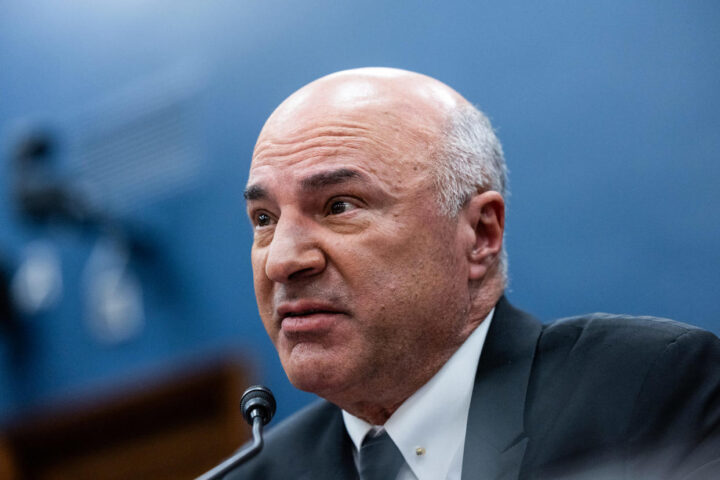In a landmark legal ruling, Toronto-Dominion Bank (TD Bank) has been fined $3 billion for its failure to prevent money laundering activities orchestrated by international drug cartels. This massive penalty highlights increasing regulatory scrutiny on financial institutions, which are required to maintain stringent controls to prevent illicit money flows through their networks. The case underscores the growing pressure on banks to prioritize anti-money laundering (AML) compliance to avoid becoming enablers of global criminal enterprises.
TD Bank’s troubles stem from an extensive investigation conducted by U.S. and Canadian authorities, uncovering a significant pattern of negligence over a decade. According to court documents, TD Bank failed to adequately monitor suspicious transactions that were part of a broader money-laundering scheme connected to drug cartels, primarily in Latin America. The investigation revealed that cartel members used the bank’s accounts to funnel billions of dollars in illicit funds into the legitimate financial system, effectively disguising the origins of their drug-related profits.
The U.S. Department of Justice (DOJ) and the Financial Transactions and Reports Analysis Centre of Canada (FINTRAC) worked in coordination to gather evidence. They revealed that TD Bank’s internal systems failed to detect red flags, such as unusually large cash deposits, rapid cross-border transfers, and transactions linked to high-risk individuals and entities on international sanctions lists. Authorities emphasized that the bank’s compliance departments overlooked or downplayed many of these activities, creating a weak link in the global fight against money laundering.
According to the DOJ, TD Bank did not take sufficient steps to enhance its anti-money laundering controls, despite repeated warnings and past fines related to similar issues. Investigators noted that the bank’s internal reporting system flagged suspicious transactions but failed to escalate them properly to regulators or law enforcement.
“TD Bank’s lack of adequate oversight allowed drug cartels to exploit the financial system on a massive scale,” stated U.S. Attorney General Merrick Garland. “This failure represents a profound breach of public trust and international security.”
One critical flaw in the bank’s system was its reliance on outdated software that struggled to keep pace with the increasingly sophisticated techniques used by criminal organizations. TD Bank also faced criticism for understaffing its compliance departments, limiting their ability to thoroughly review transactions or investigate potential risks effectively.
The $3 billion fine, one of the largest ever imposed on a North American bank, serves as a stark reminder of the significant consequences financial institutions face if they fail to uphold strict anti-money laundering (AML) protocols. For TD Bank, the impact extends beyond just the financial hit. The bank’s reputation has suffered a serious blow, with shareholders and customers alike raising concerns about the institution’s governance and risk management practices.
Industry analysts note that this case sets a new precedent for how regulators handle large-scale money laundering scandals. It signals a shift toward more aggressive enforcement measures against institutions that don’t comply with AML regulations, especially in cases involving criminal networks that pose direct threats to public safety.
“Banks can no longer afford to treat anti-money laundering as a box-ticking exercise,” said James Freeland, a financial crime expert at the University of Toronto. “The level of sophistication in criminal operations today requires banks to implement more advanced, real-time monitoring systems and invest in staff with deep expertise in financial forensics.”
In a public statement following the announcement of the fine, TD Bank admitted to shortcomings in its compliance framework but denied any intentional wrongdoing. CEO Bharat Masrani stated, “We take our responsibility to safeguard the integrity of the global financial system very seriously. While we are disappointed by the findings, we are committed to implementing significant changes to ensure this does not happen again.”
TD Bank has vowed to overhaul its AML procedures by upgrading its transaction-monitoring technology, enhancing employee training, and significantly increasing the size of its compliance teams. Masrani also emphasized that the bank is cooperating fully with authorities and is taking proactive measures to settle all outstanding issues related to the case.
The bank also agreed to undergo a series of independent audits to assess the effectiveness of its new controls. It plans to appoint a special internal committee tasked with overseeing compliance and reporting directly to the board of directors. Experts predict that TD Bank’s remediation efforts will cost the institution hundreds of millions of dollars in addition to the substantial fine, impacting its short-term profitability.
The drug cartels involved in the money-laundering scheme used a variety of complex techniques to evade detection, including funnel accounts, offshore shell companies, and cryptocurrency exchanges. Many of these operations originated in countries such as Mexico and Colombia, where drug cartels wield significant power and influence. By using TD Bank’s financial network, the cartels were able to channel proceeds from narcotics sales into real estate investments, luxury goods, and other legitimate enterprises, effectively “cleaning” the illicit money.
This case echoes similar instances in the past where global financial institutions have faced sanctions for enabling criminal activities. However, the magnitude of TD Bank’s penalty reflects the growing scale of transnational crime and the heightened importance of international cooperation in combating it.
In the wake of TD Bank’s penalty, lawmakers in both Canada and the U.S. are pushing for reforms to close loopholes that criminals exploit. Proposed regulations include stricter requirements for banks to report transactions involving high-risk regions and industries, as well as greater collaboration between financial institutions and law enforcement agencies.
“The TD Bank case should serve as a wake-up call for the entire financial industry,” said FINTRAC’s Director Sarah Paquet. “We are entering a new era of regulation where laxity and loopholes will no longer be tolerated. Banks need to be vigilant, or they will face severe consequences.”
TD Bank’s $3 billion fine represents one of the most significant penalties ever imposed for failing to prevent money laundering by drug cartels. It sends a powerful message to the financial sector about the importance of rigorous compliance and proactive monitoring. As TD Bank works to restore its reputation, this case serves as a stark warning that no institution, no matter how large, is immune to the far-reaching consequences of compliance failures in the global fight against financial crime.








